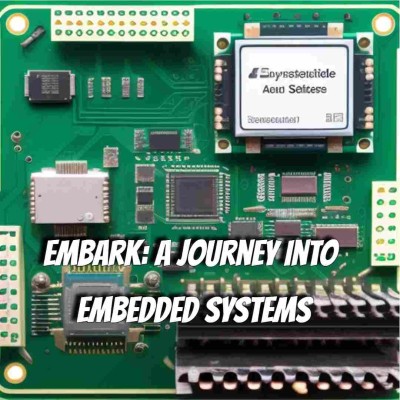What is an Embedded System :
An embedded system is a combination of computer hardware and software designed for a specific purpose. Unlike general-purpose computers, which are versatile and are able to run a wide range of applications, embedded systems are designed for a specific task.
They can be useful for smaller as well as larger applications. The embedded systems are programmed or can have fixed functionality. They can perform a single task with no user interface, eg. Thermostats, Microwave ovens, Alarm clocks, Vending Machines, etc. Also, they can perform complex tasks with user interfaces which include Medical devices, Smartphones, tablets, Home Automation Systems, etc.
Characteristics of Embedded System :
Dedicated Functionality – Embedded systems are designed to perform a particular task or set of functions. They can be used in Smartphones, Medical devices, etc.
Real-time operation – Embedded systems are operated in real-time. They should generate desired outputs for a given input. This is very significant in the applications like medical devices, automobile applications, etc.
Resource Constraints – Embedded systems have limited computational resources, which include storage, memory, processing power, and sometimes power consumption.
Integration – Embedded systems are integrated into the larger product of which they are part. They comprise sensors, actuators, microcontrollers or microprocessors, memory, and communication interfaces.
Reliability – Embedded systems should be operated over a long time without human intervention. Therefore they are built to withstand under various environmental conditions to achieve the desired operation.
Customization – Embedded systems can be customized to attain specific requirements of a particular system/product.
Examples of Embedded System :
- Automobile – Automobiles have multiple embedded systems. They are important for the safety of a vehicle; advanced technology and sensors are used. They find applications in-car navigation systems, airbags, and anti-lock braking systems.
- ATMs – Automated Teller Machine is a computerized machine. The communication occurs over a network with the host computer of the bank. The host computer checks data entered by the user and store transaction, while the embedded system in the ATM display transaction data and inputs from the ATM keyboard.
- Medical Equipment – Embedded systems find many applications in healthcare The devices are equipped with multiple sensors to collect sensors to collect data of patients like – heart rate, pulse rate, etc. They are sent to the cloud where doctors can easily analyze data. It is useful for remote diagnosis. Example – Used in Pacemaker.
- GPS System – The GPS system uses satellites to synchronize data related to location, time, and speed. The receiver that receives data has an embedded system. Embedded devices help people to find their current location as well as destination easily. GPS is used in – Mobile phones, Cars, etc.
- Fitness Trackers – A fitness tracker is an example of an embedded system that is designed to monitor and track various physical activities. It comprises sensors, memory, microcontroller, or microprocessor. These trackers have the ability to display real-time data analysis.
Future of Embedded System :
- AI and Machine Learning – AI and Machine learning algorithms within embedded systems will ensure smarter and more autonomous functioning.
- IoT – Embedded systems can become more interconnected with the Internet of Things. This can find applications in remote monitoring, data collection, smart home devices, automation, etc.
- Edge computing – Embedded systems can handle high data processing, which can reduce latency and also conserving bandwidth. This enhances real-time decision-making capabilities.
- Smart Cities – Embedded systems can play an important role in the development of smart cities. i) They can be used in smart traffic management where embedded sensors can monitor traffic flow and congestion. Ii) They can be used in waste management where embedded sensors in trash bins can monitor fill levels, alerting authorities when they are full, etc. iii) Water Management. iv) Public Transportation.
- Healthcare Applications – Embedded systems play crucial roles in this industry like remote patient monitoring, advancement in the device, etc.
More Post Of Embedded Systems:

